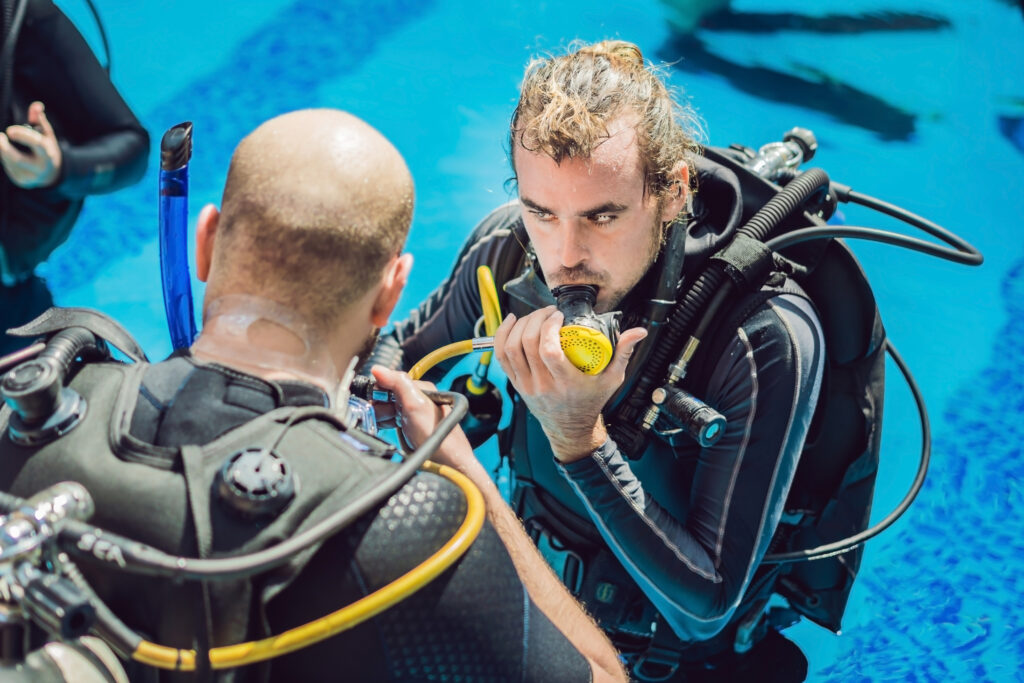
Getting a PADI SCUBA certification should be on every underwater enthusiasts list. If you are interested in a SCUBA certification you should be prepared for the financial aspect, and for the time aspect. Saving up and finding the perfect time for you and your family is important.
Typically a SCUBA certification for open water takes up to three to four days. If you really want to immerse yourself into your SCUBA training and complete it within a short period of time, consider taking time off and setting aside time in advance for the course.
The time to obtain the certification does not include book work and pool time. You can go about this one of two ways. If you are a fast learner, you can study for a full week and train in the pool for a week or longer. Some individuals may be able to certify by studying a day before each training course and then pass each module. That would be up to your PADI instructors protocol.
One thing you will want to ensure is that you are in shape. Check out By the Shore Scuba Instruction’s article on exercises to help you with SCUBA diving. You will want to research different gear, and the cost of all types of equipment. By the Shore Scuba Instruction offers you assistance selecting the gear that’s best for you. We also offer most of the gear and equipment you will need.
A very important thing to consider is how far you will want to go with your PADI certification. Is this something you want for the open ocean only, or are you interested in more specific modules such as shipwrecks, caverns, or other specialized dives?
You will need to consider that some of these certifications can add on an additional 3 to 4 days or more. If you want advanced open water this will extend your course by a day or few. Depending on your instructor you may have to spread your days of instruction over a week or two.
Keep in mind First Aid, and other lifesaving courses are recommended long term for those choosing to dive in small groups. If you plan to dive regularly with a few other people scuba diving first aid may come in handy . Consider CPR and rescue breathing courses to save your fellow divers from a dive gone wrong. You may even feel safer taking a lifeguard course in addition to your First Aid for additional safety. (Please avoid obtaining the actual certification from a resort as most of these training are minimal and do not include lots of safety training.)
Get everything together for your next course . Work out your budget, your training schedule. If you feel confident about how in shape you already are you may not need as much training. If you are fairly out of shape you may want to avoid jumping right in. Test your bodily reaction to Nitrox to ensure that you don’t need extra time to adjust. If you are coming in contact with Nitrox make sure that you won’t be in highly flammable areas around this time because your clothes can still hold oxygen and become attractive to fire.
Getting ready for your SCUBA course will ensure everything runs smoothly. Depending on all the different facets you choose to pursue for your certification, your instructor, and your ability to adapt physically your training can span from an extended weekend to many weeks. Try to work out the schedule that is best for your lifestyle. Maybe an extended schedule is best for you and will allow you to get in better shape. Whatever your lifestyle or goals check out By the Shore Scuba Instruction. We will match you up with the appropriate certification, and work with your schedule.


